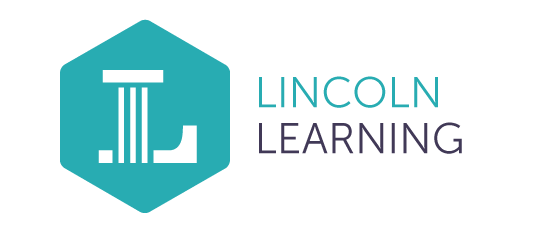This article will help both you and your children become acquainted with the Lincoln Empowered curriculum and offer some useful guidance as your children begin navigating their coursework.

Adapting Activities
As you begin engaging with the Lincoln Empowered content, remember that it is adaptable. Try not to stress if your child is unable to complete an activity as it is written. Contact the teacher or your district’s teacher mentor and adjust the activity as necessary.
For example, your child may encounter an activity where you need to visit a public place to learn more about it and have conversations with the staff. Depending on your circumstances, such a visit may not be possible. Consider having your child research the place online to learn more about it. Call the establishment instead of visiting. Or, role-play the activity in your home.
If the activity is graded, reach out to the Lincoln teacher directly and explain your situation. Lincoln teachers are ready to help you find alternative means for completing coursework, if and when necessary. Teacher mentors provided through your local district can also provide additional guidance.
Remember, it’s completely OK to spend less time on activities involving skills that your children have already mastered. Help them to focus on the activities that will foster the skills that need more development. Don’t forget that every child learns differently, so try not to focus on what may be working for friends and family.
Supporting Learning Styles
This statement is worth repeating: every child learns differently. What works for one student may not work for another. Understanding how your children learn will help with facilitating distance and online learning.
Maybe your child prefers to hear lessons being read to them instead of solely reading the instructional text. Perhaps your child prefers reading literature through a physical text, rather than on a computer screen. Try to determine how your children learn best.
It's important to note that children may prefer multiple learning styles, depending on the content with which they are engaging or skills that they are building. Understanding the way your children learn will help you facilitate their educational needs.
The Lincoln Empowered curriculum is designed to cater to these unique learning styles. Let’s look at a few examples.
Auditory Learners
For auditory learners, children can use the Texthelp option to hear the text within the lesson read aloud as they follow along. Our K-5 elementary courses include Teach Its, where a customized avatar reads the lesson as a teacher might present instruction in a classroom. The Teach It is not a replacement for the Read It, but rather a support for auditory learning.
Visual Learners
For visual learners, encourage your children to use the visuals provided in the lessons to help engage understanding. Watch Its also provide educational videos to support visual learners.
Kinesthetic Learners
Kinesthetic learners will learn best by completing the interactive, embedded lesson activities, such as card-sorting, crossword puzzles, and self-checks. Try taking activities offline, if possible, and get your children involved. Recreate a literary character with a Barbie doll and a homemade accessory instead of writing a description of one, for instance.
Navigating Supplies and Printable Materials
Try not to stress if you are still waiting on your course materials to arrive. Some items are more specific, but many of those can be replaced with household substitutions as well. For example, wooden blocks that are normally used to reinforce shapes can be replaced with anything in the house resembling that shape.
Tissue boxes can serve as rectangles. Soup cans are great examples of cylinders. Plus, your child is now actively engaged offline, completing a “treasure hunt” throughout the house. Additional resources are available in the Course Resources folder of each course. Print these pages at your leisure.
If printing is not an option, use notebook paper and a pencil to complete an activity or create a Google Doc. It is not necessary to print out all the textual components. Some worksheets and activities are lendable for discussion, while others require writing or typing.
Google Drawing is now available in K-12 Lincoln Learning courses. It allows students to complete worksheets directly online and submit them to their teachers without ever having to print. You can learn more about this course feature in our video podcast.
Transitioning to online learning certainly looks and feels much different from being in person. As you approach today’s lessons, remember that online learning is hands-on and requires parent monitoring. Encourage your children every step of the way.
Our curriculum is a framework to help students master necessary academic skill sets. How that curriculum is implemented is flexible. We encourage you to explore all options and find what works best for your children and your situation.
For more resources, visit our online Help Center for support and to review our frequently asked questions.
 Nicole Thompson is a contributing writer and editor to the Lincoln Learning blog. She brings more than a decade of experience in education, curriculum, and communications to her blogs. She has a Bachelor of Arts in Communications and a Master of Science in Instructional Leadership, with certifications in secondary English and Communications. Nicole is married with four children and has a spunky golden retriever named Cinder and a rescue dog named Annie Banannie.
Nicole Thompson is a contributing writer and editor to the Lincoln Learning blog. She brings more than a decade of experience in education, curriculum, and communications to her blogs. She has a Bachelor of Arts in Communications and a Master of Science in Instructional Leadership, with certifications in secondary English and Communications. Nicole is married with four children and has a spunky golden retriever named Cinder and a rescue dog named Annie Banannie.


